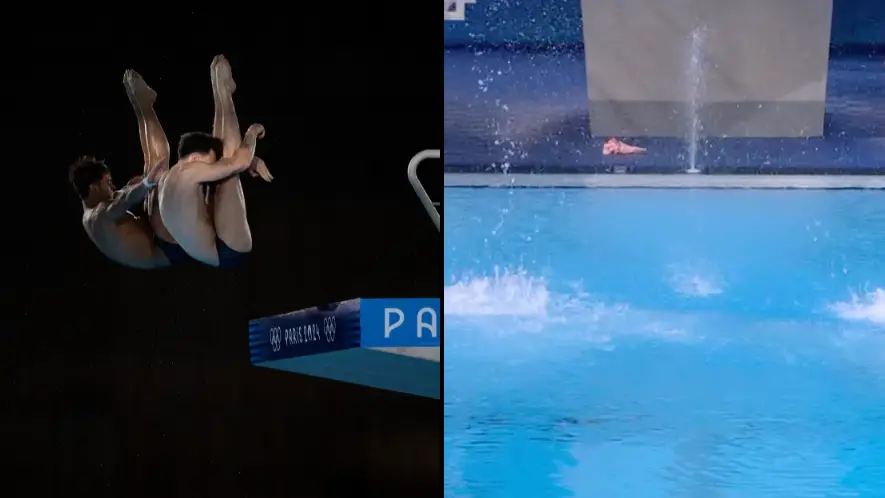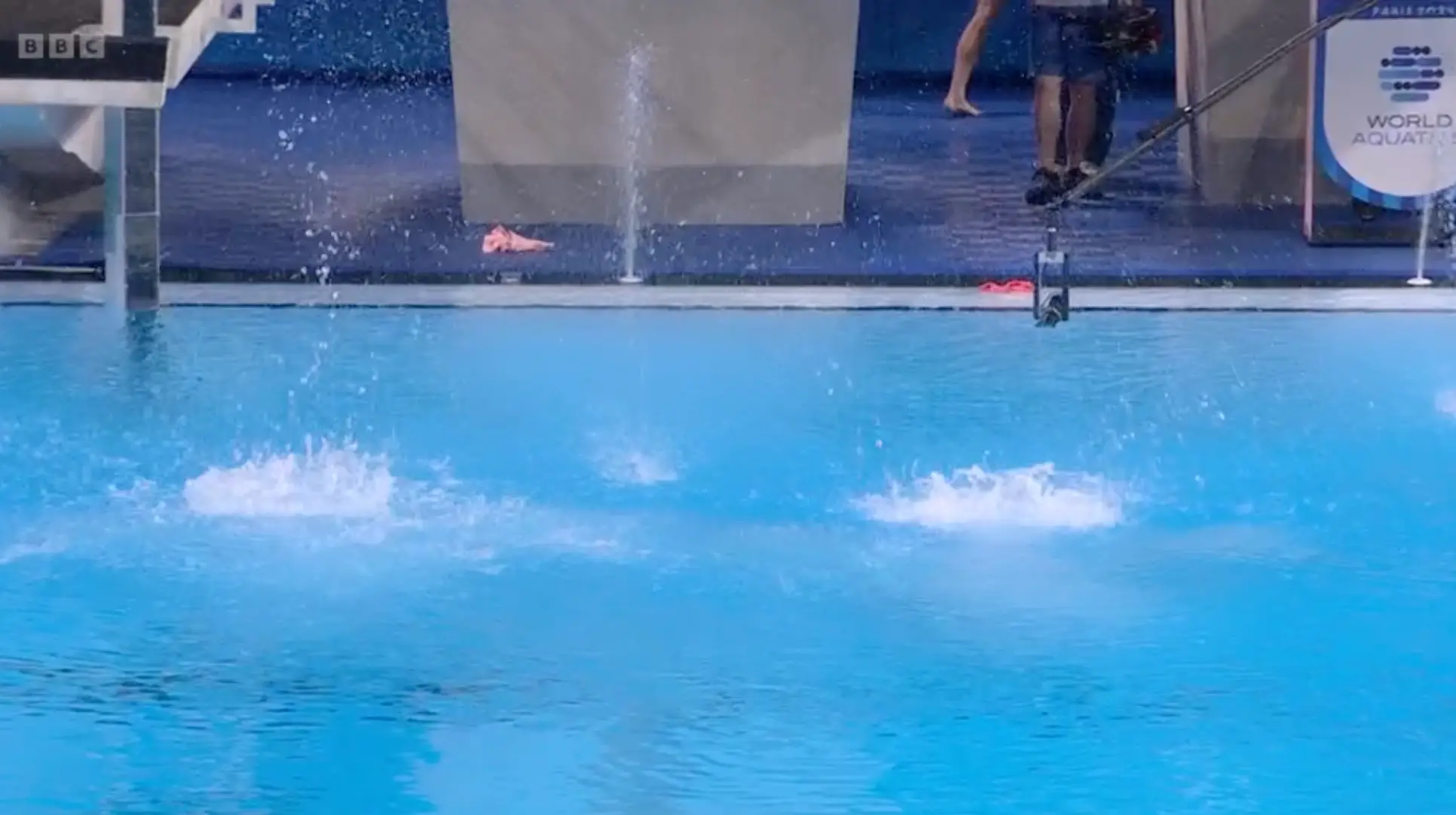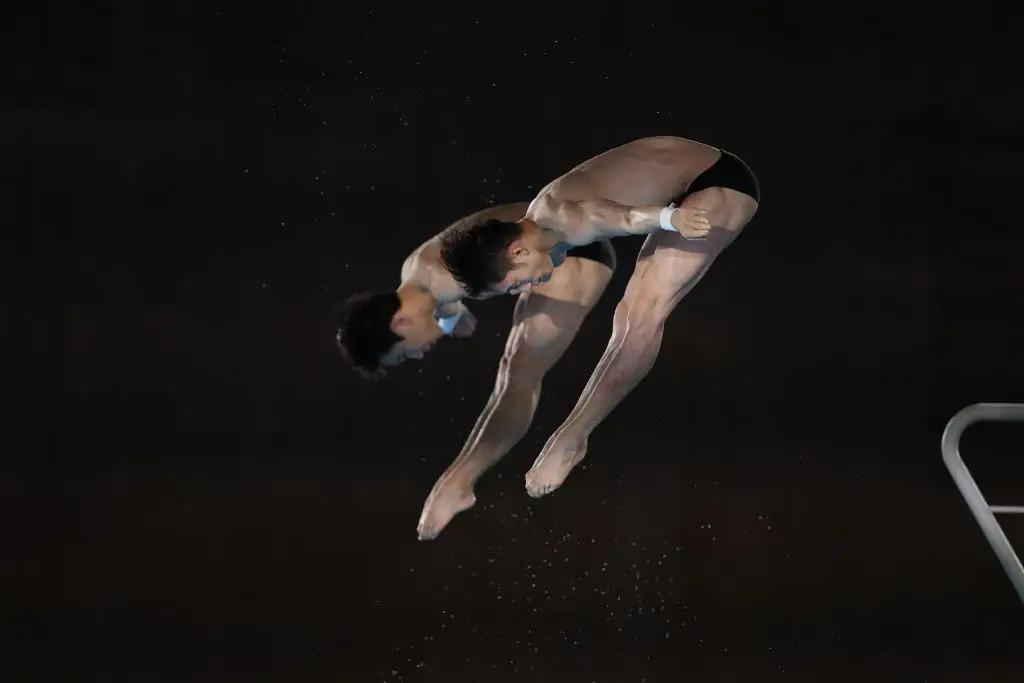
The Olympics is great for bringing the attention to certain aspects of sports that you probably wouldn't have known before - and diving is no different.
There are a lot of details, laws and procedures for certain events at the games that sports fans will just be realising details in practices that they would have been watching for years.
It's intriguing to see how many little-known rules come to light during Olympic events, but it makes it all the more entertaining to watch - and there are a number of procedures behind diving specifically that a lot of people had no idea about.
You may have noticed at the Paris Olympics that when divers are about to enter the water, sprinklers break up and spray water over the surface.
Advert

No, it's not to improve aesthetics and it's not a new procedure that's been implemented for these summer games either - having been featured in the preceding Tokyo 2020 Olympics as well.
Apparently, it's a measure put in place for safety - as water is sprayed on the pool to break the surface tension for a diver, as they leap off a diving board towards the pool, as per USA Today.
It allows the divers to see the water better as they make their way down, at speeds of up to 60 mph.
It's a rule set by the World Aquatics, formerly known as Federation Internationale de Natation (FINA), the governing body recognised by the International Olympic Committee (IOC) for all aquatic water sports, with some science behind their reasoning.

World Aquatics ensures the safety of athletes when they compete, and this particular law is stated in Rule 3.1.3.10 of the facilities guidelines:
"Mechanical surface agitation shall be installed under the diving facilities to aid the divers in their visual perception of the surface of the water.
"In pools equipped with an underwater bubble machine, the machine shall only be used for the purpose if it creates sufficient water agitation when working with a very low pressure; otherwise a horizontal water sprinkler system shall only be used."
So if the sprinkler system wasn't in place, the visibility of the water would be more difficult to see, and if the pressure of water from the sprinklers didn't make ripples on the surface, the water would feel like a sheet of glass.
This obviously increases the risk of injury, and allows the fiver to pick up their reflection and kick out at the right time on their dive down.
The more you know.
Team GB's current medal count - 12
Gold medallists
- Rosalind Canter, Laura Collett, Tom McEwen: Equestrian - Eventing team
- Tom Pidcock: Mountain Bike - Men's cross country
- Nathan Hales: Shooting - Men's trap
- Tom Dean, Kieran Bird, James Guy, Jack McMillan, Matthew Richards, Duncan Scott: Swimming - Men's 4x200m freestyle
Silver medallists
- Anna Henderson: Cycling - Women's individual time trial
- Adam Peaty: Swimming - Men's 100m breaststroke
- Tom Daley and Noah Williams: Diving - Men's synchronised 10m platform
- Adam Burgess: Canoe Slalom - Men's canoe single
- Matthew Richards: Swimming - Men's 200m freestyle
Bronze medallists
- Yasmin Harper and Scarlett Mew Jensen: Diving - Women's synchronised 3m springboard
- Kimberley Woods: Canoe - Women's slalom
- Laura Collett: Equestrian - Eventing individual